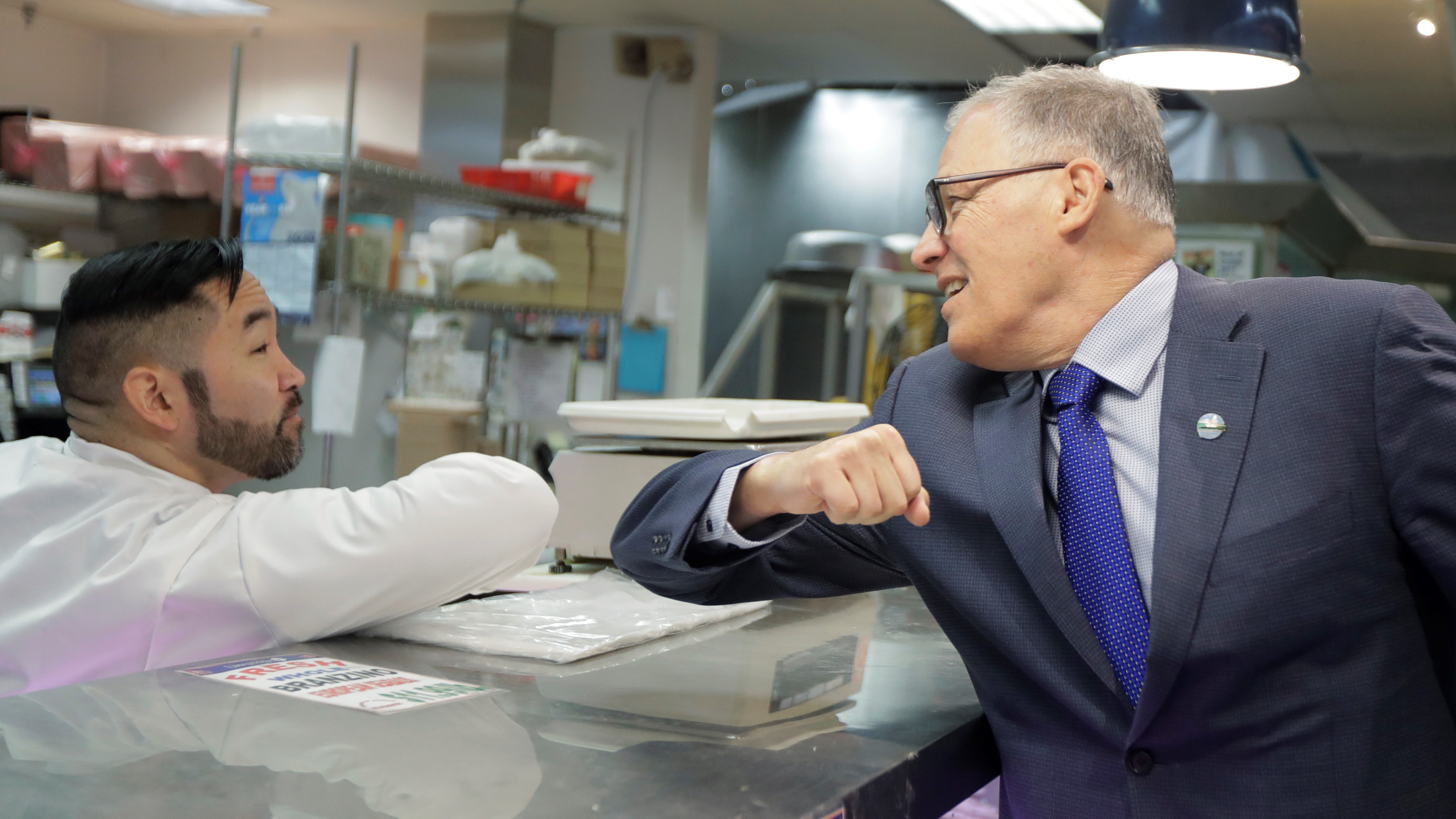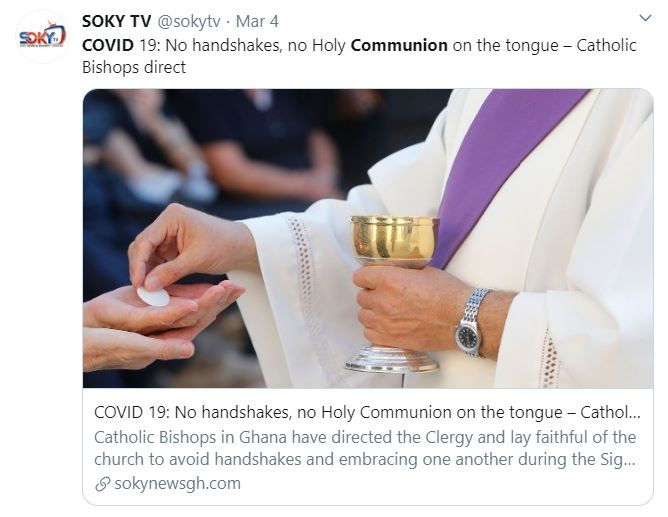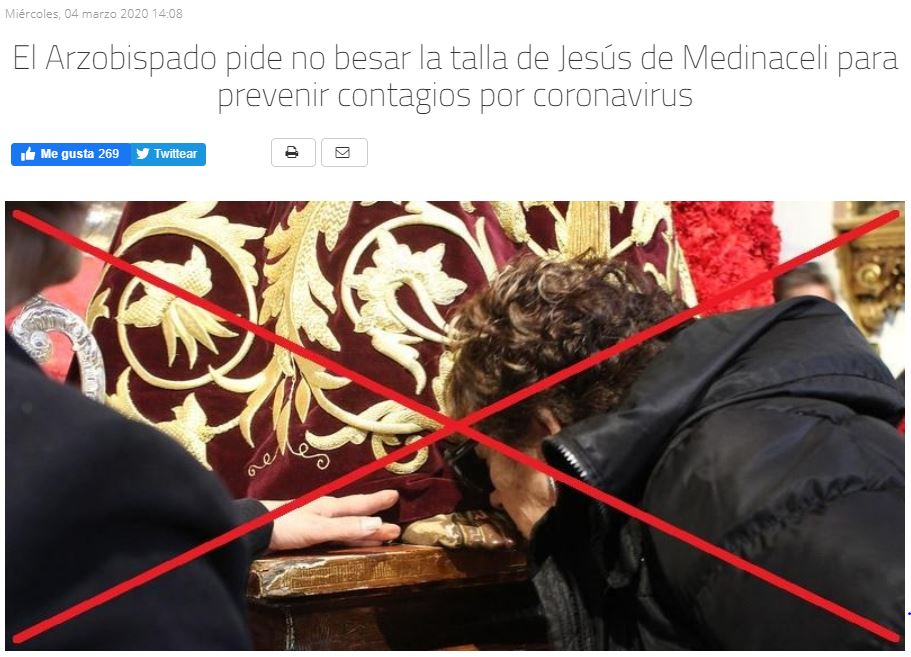As COVID-19 has spread around the world, it has caused schools to shut down, airlines to suspend flights and public events to be cancelled. But it has also forced a major rethink of common habits and rituals.
Hello, stay away from me
France and Italy made headlines this week by recommending that people avoid kissing each other on the cheeks, a common form of greeting in both countries, to prevent transmission of the disease. Switzerland's health minister issued a similar warning. And they weren't the only ones to urge caution.
The UAE was one of the first countries to issue guidance on greetings, with its Health and Prevention Ministry warning already in early February on Instagram that people should avoid the traditional nose-to-nose greeting or any other form that involved physical contact, to reduce the risk of contagion from COVID-19.
Since then, authorities elsewhere have instructed people to avoid handshakes and hugs.
"It's very automatic but don't do it," the health minister of New South Wales in Australia, Brad Hazzard, said this week, suggesting instead that "Aussies gave each other a pat on the back for the time being."
Germany's Interior Minister Horst Seehofer prompted laughter at a cabinet meeting on Monday when he waved Chancellor Angela Merkel off as she tried to shake his hand. "You're right!" she responded.

Washington Governor Jay Inslee, right, bumps elbows with a worker at the Uwajimaya Asian Food and Gift Market in Seattle, U.S., March 3, 2020. /AP
Washington Governor Jay Inslee, right, bumps elbows with a worker at the Uwajimaya Asian Food and Gift Market in Seattle, U.S., March 3, 2020. /AP
Alternative greetings like the "elbow bump" or "foot shake" have gone viral in recent days. Even U.S. Vice-President Mike Pence was seen greeting Washington Governor Jay Inslee with an elbow bump instead of the usual formal handshake during a visit on Thursday.
In New Zealand, a Maori tribe said it was temporarily doing away with its traditional "hongi" greeting, where members press their noses against each other.
In Romania, where local festivities mean women receive particular attention in early March, the state secretary for health Nelu Tataru advised: "We must give women flowers but not kiss them."
Read more:
'No more kissing': COVID-19's culture shock for a European greeting
COVID-19 outbreak poses challenges for Christian traditions in Romania
Bring your own prayer mat
Religious institutions have also been forced to adapt age-old customs amid health warnings.
In the U.S. and Canada, several dioceses have discontinued the practice of letting people sip wine from the same cup during communion.
In Austria, the Catholic Church has recommended that priests hand out communion wafers to parishioners by hand rather than placing them directly on their tongue. Similar directives have gone out in Ghana and Australia.

Churches around the world, including St. Peter's Basilica in Rome and Vienna St Stephen's Cathedral, have emptied the founts of holy water where faithful traditionally dip their fingers upon entering before making the sign of the cross.
Iran, where the death toll from COVID-19 has topped 100, cancelled Friday prayers altogether, advising people to pray at home instead. Tajikistan, which has had no cases so far, also suspended Friday prayers for the time being, while in Singapore, Muslims have been encouraged to bring their own prayer mats to mosques to limit contagion.
No kissing relics
The custom among devotees of kissing religious symbols has especially raised concerns about hygiene.
Israel's Chief Rabbi David Lau cautioned Jews on Wednesday to stop the custom of kissing or touching "mezuzahs," small cases fixed to the doorframe in synagogues and homes that contain Hebrew texts. The Conference of European Rabbis also advised people not to kiss religious symbols, such as communal prayer books, prayer shawls and Torah scrolls.
Similarly, Romania's Orthodox Church has recommended that churchgoers refrain from kissing religious icons and suggested they could bring their own spoon for use during communion.
In Spain, the archbishop of Madrid asked faithful not to kiss the feet of a statue of Jesus in one of the city's basilicas, as is the tradition every first Friday of March. In case the warning was not clear enough, it also put out an unambiguous visual aid.

Official website of the Archdiocese of Madrid, Spain. /CGTN screenshot
Official website of the Archdiocese of Madrid, Spain. /CGTN screenshot